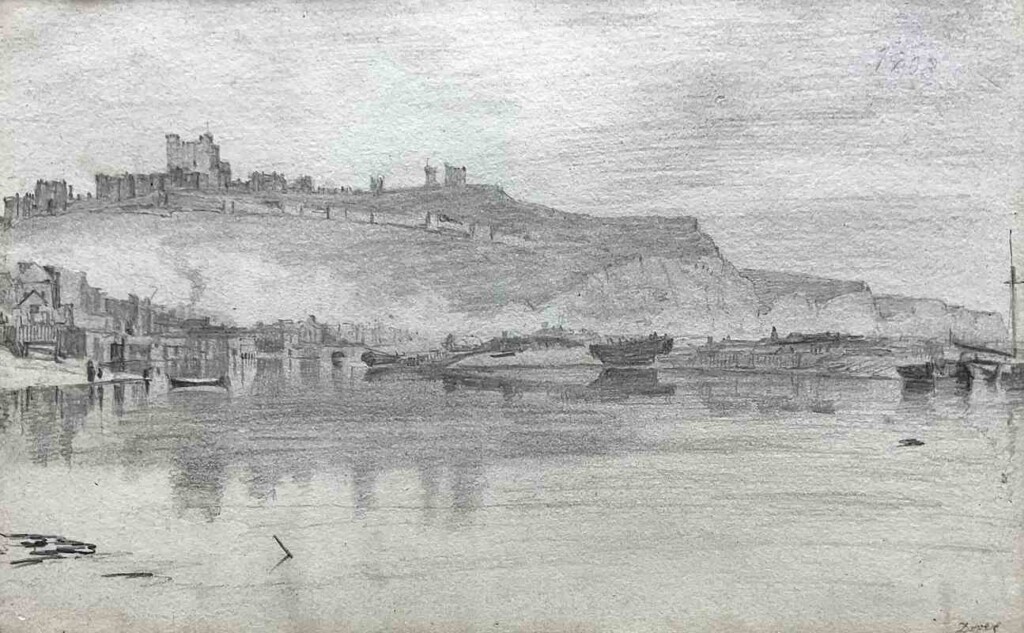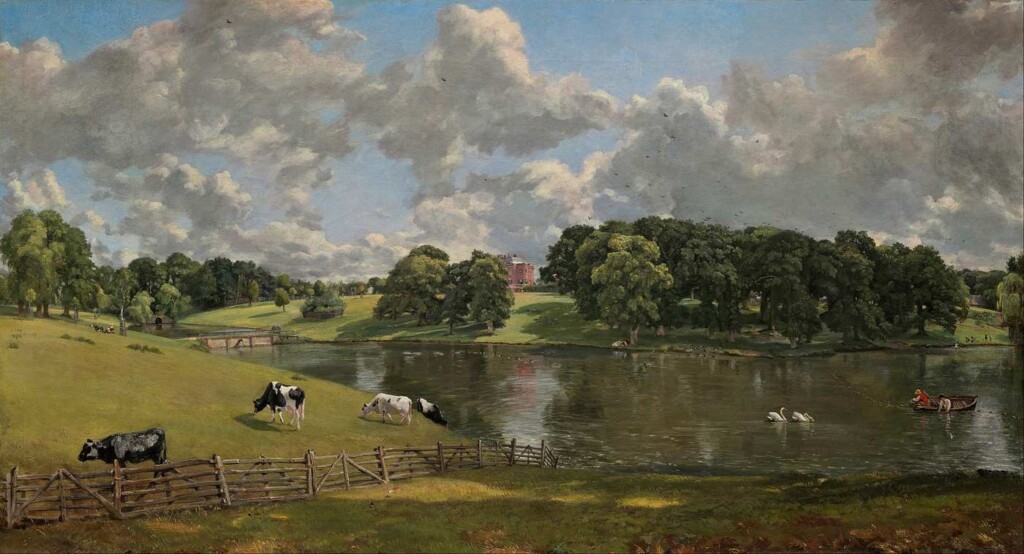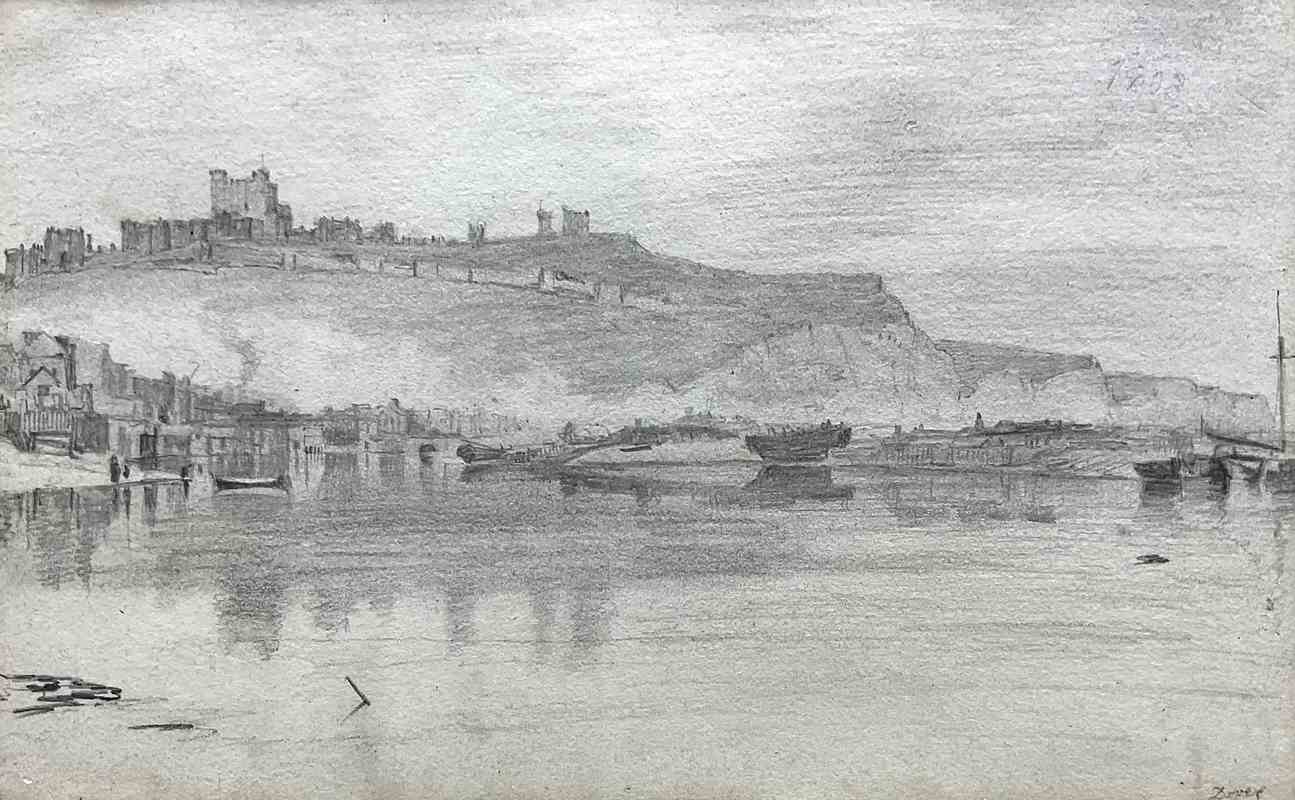
A sketch of Dover Harbor, created by British landscape artist John Constable on a sailing trip in 1803, was found within a smashed frame in a house in Leeds recently.
It came to light during a house clearance, and those responsible for cleaning and restoring realized the celebrated artist was responsible for the work when they found ‘J Constable’ written by hand on the back while examining it.
It’s one of 130 drawings that the landscape artist made during the month-long trip from London to Deal, although less than 50 are known to be left in existence.
A letter that Constable sent to his friend informs art historians that the sketch was made on the last day of his trip.
“I came on shore at Deal, walked to Dover (about one and a half hours) and the next day returned to London,” he wrote in April 1803.
Constable had been aboard an East India boat called Coutts, which was captained by his father’s friend Robert Torin. His notes indicate he left in a hurry after Torin decided to sail to China.
The sketch was made from the deck of the Coutts and contains a broad view across the harbor and the wharf buildings. Above the harbor on a high hill sits the kingly Dover Castle.
“Actually, it was only by the greatest good fortune that any of them survived,” said Dominic Cox, from auctioneers David Duggleby who will be selling the artwork. “Constable had to get off the ship in a hurry when the decision to depart for China was taken and he left his carefully wrapped parcel of drawings behind.”
“Luckily they were recovered before they ended up in the Far East.”
OTHER ATTIC ARTIFACTS: A Thrift Store Shopper Joked She’d Found a Famous Artist’s Work for $4 – and Actually She Really Had
John Constable was born on the River Stour and grew up amid corn fields, canals, and villages which became both subjects of his artistic attention and, later, famous under the moniker “Constable Country.”
Constable painted many full-scale preliminary sketches of his landscapes to test the composition in advance of finished pictures. These large sketches, with their free and vigorous brushwork, were revolutionary at the time, and hence why this one is predicted to sell for as much as $150,000.

Mr. Cox said the painting was identified as an original Constable following the house clearance of the property of Leeds.
It is thought a handwritten note on the back of the picture may have been penned by a family member when they later sold off his works.
MORE LOST AND FOUND WORKS: The Painting Paid for Grilled Cheese Sandwiches 50 Years Ago – Now Earns the Restaurant Thousands
“That is an old inscription, perhaps added when members of his family sold off drawings and sketches after his death in 1837. It is not Constable’s signature,” Mr. Cox Clarified.
“The backing of the framed drawing bears the label of The Little Gallery of Kensington Church Walk in London, a gallery that was in business in the early 1970s and specialized in the sketches and drawings of big-name artists that were far more readily available at that period than they are today.”
SHARE This Unlikely Find With Your Friends In The Art World…




















